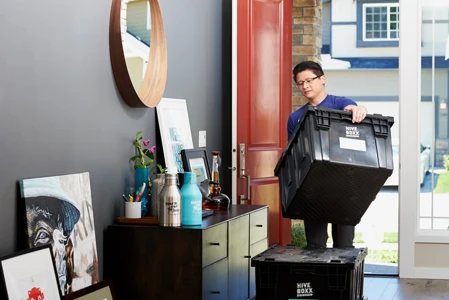If you’re currently living in a council house or housing association, you may have thought once or twice about making your way onto the property ladder by buying a house you can call your own. You may have even thought further about buying the house you’re currently renting. Well, if that’s the case then making the jump to owning your own property may be easier than it seems by using the Right to Buy scheme.
The current Right to Buy scheme allows council house or housing association tenants in England and Northern Ireland to buy their homes for less than its market rate. The scheme is, however, no longer available in Scotland or Wales.
What discount can I receive?
The new Labour government have announced they will be reducing the current Right to Buy discounts, allowing councils to reinvest this money in new housing developments to help boost affordable housing stock.
New government legislation is capped, depending on the location of the property you’re buying:
|
Region |
Maximum Discount |
|
Yorkshire and the Humber |
£24,000 |
|
East Midlands |
£24,000 |
|
West Midlands |
£26,000 |
|
Eastern |
£34,000 Except the district of Watford (£16,000) |
The discount is also based on a few different factors:
● How long you’ve rented the property
● The type of property
● The value of the property
● Whether you’ve used Right to Buy in the past
It’s important to note that if you sell your home within five years, you’ll have to pay back either some or all of your discount, plus a share of any profit.
Who can apply for Right to Buy?
You can apply for Right to Buy if:
● You’ve been a council or public sector tenant for three years
● You wish to use the property as your main home
● You don’t share rooms with other people
● Your landlord is the council, a housing association, NHS trust or other public sector landlord
You can also apply with someone else who shares the tenancy with you, or up to three family members if you’ve lived together for at least 12 months.
If the council sold your home to another public sector landlord while you were still living there, Preserved Right to Buy means that you could still buy the house.
Who is not eligible for Right to Buy?
There are, however, a few exceptions to the Right to Buy scheme. You will not have a Right to Buy if:
● You’re under threat of eviction
● You’re bankrupt or have large debts
● Your home is reserved for the elderly or disabled
● There is a housing shortage
You may also be ineligible for Right to Buy (in England) if you are a housing association tenant. In this case, you could apply for Right to Acquire. The discounts are typically lower than Right to Buy, usually ranging from £9,000 to £16,000.
How to apply for Right to Buy
So, you’ve decided the Right to Buy scheme is just what you’re looking for. Now all that’s left is to send off an application. You must complete the Right to Buy application form (RTB1 notice) and send it to your landlord.
Your landlord must reply to your request within four weeks of receiving your application. If they decline, they must give you a reason why. But, if they agree to sell, they’ll make you an offer!
The offer should include the following:
● The price you should pay for the property and how this was worked out
● Your discount and how this was worked out
● A description of the property and any included land
● Estimates for service charges for a flat or maisonette for the first five years
● Any known problems with the structure of the property
After receiving the offer, you have 12 weeks to decide whether you’d like go ahead and buy the property. Don’t worry if you do agree to buy and then change your mind. You can pull out of the sale. You can pull out of the sale at any time and continue to rent the property from your landlord.
If you disagree with your landlord’s offer, you must contact them and explain why. If you feel that the market value of the property has been set too high, you can appeal for a district valuer from HMRC to provide an independent valuation.
Looking for mortgage advice?
If you’re looking to buy your rental property and need advice on what mortgage is right for your needs, feel free to get in touch with Mortgage Advice Bureau. Our advisers will be happy to compare rates and find the ideal mortgage for your circumstances.
Ready to take the leap into homeownership? Our articles can help guide you through the process of buying your first home.
Important information
Your home may be repossessed if you do not keep up repayments on your mortgage.
There may be a fee for mortgage advice. The actual amount you pay will depend on your circumstances. The fee is up to 1% but a typical fee is 0.3% of the amount borrowed.

